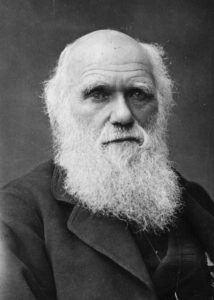Charles Darwin
Charles Robert Darwin was born in 1809 in England. His early interest in nature led him to ignore his medical education at the University of Edinburgh and instead, he helped to investigate marine invertebrates. His passion for natural science was encouraged through his studies at the University of Cambridge. During his 5-year voyage on the HMS Beagle, the observations and theories he made helped him become an eminent geologist. Puzzled by his findings on the geographical distribution of wildlife and fossils, Darwin began to investigate further, which helped him conceive his theory of natural selection in 1838. He also examined human evolution and sexual selection and conducted extensive research on plants. His 8-year work on barnacles helped him find homologies showing that slightly changed body parts served different functions to meet new conditions. In turn, this earned him the Royal Society’s Royal Medal in 1853 and made his reputation as a biologist. In 1959, he published one the most popular books of all time, On the Origin of Species, filled with detailed observations, inferences and consideration about homologies between humans and other mammals, sexual selection and the differences between human races which later proved to be extremely controversial. His theory of evolution, as descent with modification, is one of his biggest legacies and continues to be honoured across the world for his scientific discoveries.

